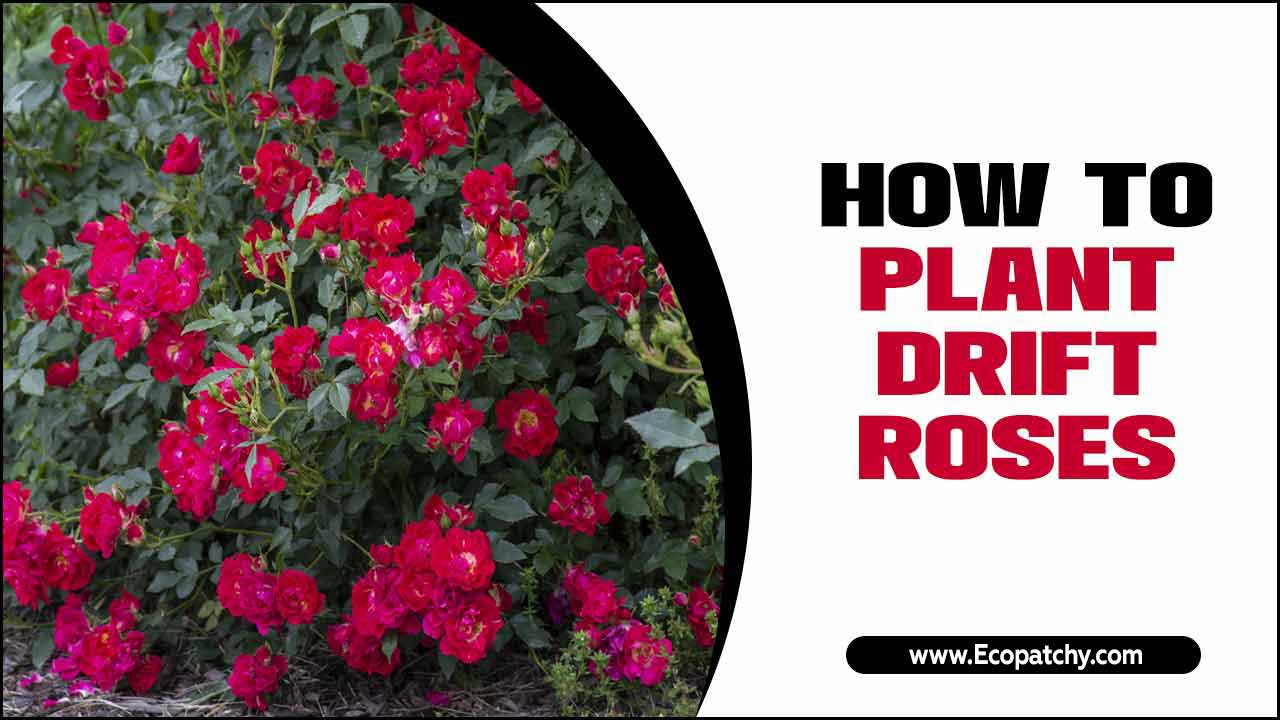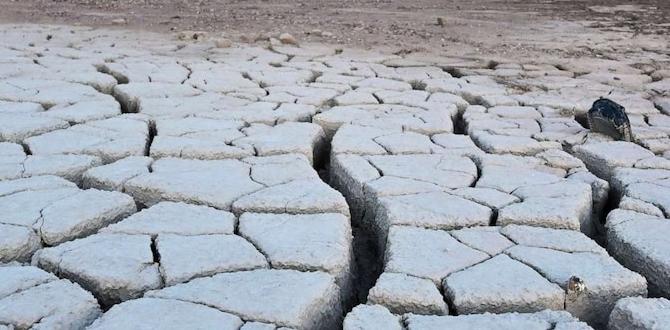Neem Oil For Gardening: Benefits, Uses, And Tips
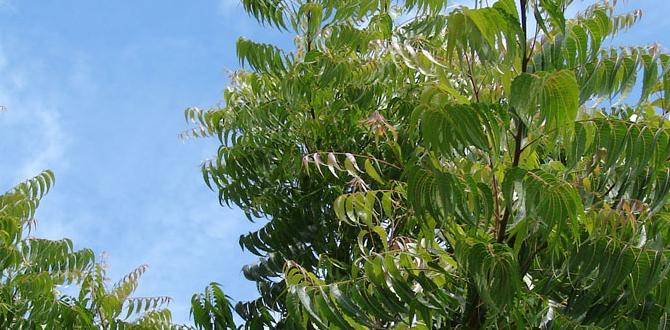
Neem Oil for Gardening
Neem oil is a fantastic tool for gardeners. It helps control pests and diseases naturally. This oil comes from the seeds of the neem tree and is safe for plants, pets, and humans. Did you know neem oil can repel over 200 types of insects? Using it can promote healthy plant growth. Just mix it with water, spray, and watch your garden thrive. Want to keep your plants happy? Neem oil might be your best friend!What is Neem Oil?
Definition and origin of neem oil. Extraction process and types of neem oil available.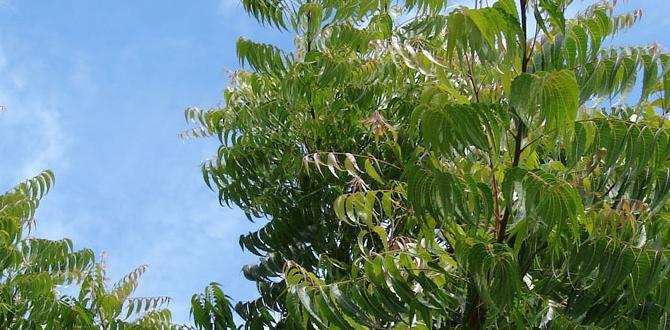
Neem oil is a natural oil taken from the seeds of the neem tree. It grows in India and many other countries. People have used neem oil for ages to help with plants and health. To make neem oil, small pieces of seeds are crushed. The oil is then pressed out. There are different types of neem oil available, like cold-pressed or refined, each serving unique purposes.
What is the extraction process of neem oil?
The extraction of neem oil involves two main methods:
- Cold pressing: This method uses pressure to extract oil without heat, keeping its benefits intact.
- Solvent extraction: Here, chemicals help pull oil from the seeds, though it may lose some natural properties.
What are the types of neem oil?
Some common types include:
- Cold-pressed neem oil: Best for gardening and organic use.
- Refined neem oil: Has less strong smell; suitable for personal care products.
Benefits of Neem Oil in Gardening
Natural pest control properties. Fungal disease prevention and treatment.
Neem oil is a superhero for plants! It’s like a tiny personal bodyguard against nasty pests. Not only does it *send those bugs packing*, but it also helps plants fight off sneaky fungal diseases. Imagine your flowers donning capes and saying, “Not today, mildew!” It’s a natural solution, so you can garden without worrying about harmful chemicals. Below is a quick guide:
| Benefit | How It Helps |
|---|---|
| Natural Pest Control | Repels pests like aphids and mites. |
| Fungal Disease Prevention | Helps *prevent and treat* diseases like powdery mildew. |
With neem oil, your garden becomes a happy place where plants thrive and bugs take a long vacation! Why not give it a try?
How to Use Neem Oil in Your Garden
Proper dilution and application methods. Best times for application and frequency.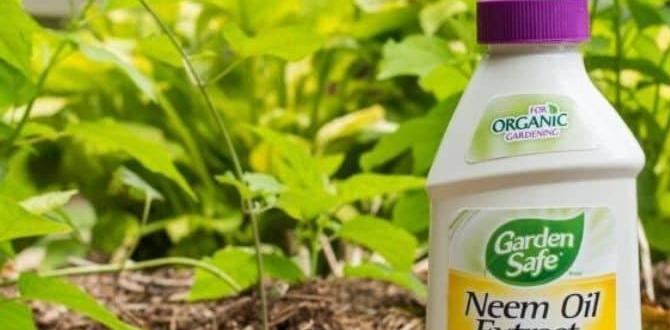
Start by mixing neem oil with water. A good ratio is 2 tablespoons of neem oil to 1 gallon of water. Shake well to blend. Apply the mixture using a spray bottle or a garden sprayer. It’s best to spray early in the morning or late afternoon. This avoids strong sunlight, which can break down the oil. Repeat every 7 to 14 days for the best results.
When should you apply neem oil?
Apply neem oil during calm, dry weather. This helps the oil stick better to plants. Avoid rainy days, as rain can wash it away.
Common Pests and Diseases Treated by Neem Oil
List of pests (e.g., aphids, spider mites). Fungal diseases (e.g., powdery mildew, root rot).
Many gardeners face challenges with pests and diseases. Neem oil is a natural solution for these problems. It helps control harmful insects and diseases that can damage plants. Here’s a list of common pests and fungal issues that neem oil can treat:
- Aphids
- Spider mites
- Whiteflies
- Mealybugs
It also fights diseases like:
- Powdery mildew
- Root rot
- Leaf spot
Using neem oil can keep your garden healthy and thriving.
What pests can neem oil help with?
Neem oil helps with pests like aphids, spider mites, and whiteflies. These bugs can harm your plants. Neem oil acts like a shield, protecting your garden effectively.
Safety and Environmental Considerations
Safety for beneficial insects and pollinators. Guidelines for safe use in organic gardening.
Using neem oil in your garden is friendly to insects and pollinators. It helps keep away bad bugs without harming the good ones. Always spray in the evening, like trying to sneak a midnight snack. This keeps busy bees and butterflies safe while they sleep. Remember to mix it well and follow the guidelines. Here’s a quick look at the best practices:
| Guideline | Description |
|---|---|
| Target Time | Spray in the evening. |
| Mixing | Follow instructions on the label. |
| Check Weather | Avoid windy or rainy days. |
By being careful, we can protect our garden and the little critters buzzing around it. Gardening can be fun, save the bees, and maybe even earn you a flower crown!
DIY Neem Oil Solutions
Recipes for making neem oil sprays and mixtures. Additional ingredients that can enhance effectiveness.Creating your own neem oil solutions is easy and fun! Start with a simple spray by mixing 2 tablespoons of neem oil with 1 gallon of warm water. Add a few drops of liquid soap to help it mix well. Want more punch? Try adding garlic or cayenne pepper to scare off pests! Remember to shake it before use—no one likes settling for leftovers!
| Ingredient | Measurements | Benefits |
|---|---|---|
| Neem Oil | 2 tbsp | Natural insect repellent |
| Water | 1 gallon | Dilutes the oil |
| Liquid Soap | 5 drops | Helps oil mix |
| Garlic | 1-2 cloves | Deters pests |
| Cayenne Pepper | 1 tsp | Repels unwanted critters |
With these simple recipes, you can keep your garden happy and healthy. Who knew pest control could be so easy and amusing? Happy gardening!
Potential Side Effects and Precautions
Possible plant sensitivity and how to test. Recommendations for minimizing potential harm.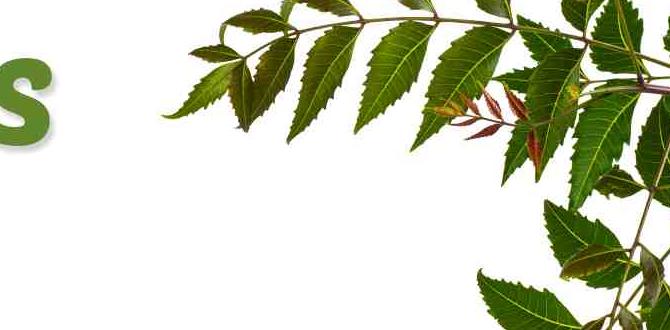
Plants, like humans, can be fussy. Some may react poorly to neem oil. To avoid drama in your garden, it’s wise to test a small area first. Apply neem oil to a few leaves and wait 24 hours. If those leaves don’t look like they attended a wild disco party, you’re good to go! Here are some tips to keep your plants safe:
| Tip | Details |
|---|---|
| Start Small | Test on a few leaves first. |
| Dilute | Mix with water for a gentler approach. |
| Time it Right | Apply during cooler parts of the day. |
By following these tips, you can enjoy your gardening adventures without a floral catastrophe! Remember, happy plants make a happy gardener.
Case Studies: Neem Oil Success Stories in Gardens
Reallife examples of effective neem oil use. Testimonials from gardeners and agriculturalists.
Many gardeners have shared their amazing stories about neem oil. One happy customer, Sarah, used it to protect her roses from pesky aphids. She said, “My roses are blooming like superheroes now!” Another farmer, Tim, tried neem oil on his tomato plants. He found that it cut down pests by 80%! Wow! Almost like magic! A little neem oil goes a long way in keeping plants healthy.
| Gardener | Crop | Result |
|---|---|---|
| Sarah | Roses | Pest-free bloom! |
| Tim | Tomatoes | 80% less pests! |
These stories show that neem oil is making waves in gardens everywhere. Who knew that nature’s remedy could be so effective? Keep it handy; your plants might thank you later!
Conclusion
In conclusion, neem oil is a powerful ally for gardening. It naturally fights pests and diseases, keeping plants healthy. You can use it easily by mixing it with water. Remember to spray it on leaves and soil. For best results, read more about its benefits. Start experimenting with neem oil today and watch your garden thrive!FAQs
What Are The Benefits Of Using Neem Oil In Organic Gardening?Neem oil is great for organic gardening because it’s natural and safe for plants. It helps keep bugs away without harming good insects like bees. You can use it to fight plant diseases too. It also helps plants grow strong and healthy. Using neem oil means you can garden without chemicals!
How Do You Properly Dilute Neem Oil For Application On Plants?To dilute neem oil for plants, you need water and soap. First, mix one tablespoon of neem oil with one teaspoon of liquid soap in a spray bottle. Then, add two cups of warm water. Shake it well to mix everything. Now, you can spray it on your plants!
What Types Of Pests Can Neem Oil Help Control In The Garden?Neem oil can help control many garden pests. It works against bugs like aphids, spider mites, and whiteflies. You might also see it help with beetles and caterpillars. Using neem oil is safe for plants but helps keep pesky insects away!
Are There Any Plants That Should Not Be Treated With Neem Oil?Yes, some plants should not be treated with neem oil. For example, plants like cucumbers and certain types of ferns can be sensitive to it. You should always test a small part of the plant first. If it looks sick or damaged after a day, don’t use neem oil on it. Always check the label or ask a grown-up if you’re unsure!
How Often Should Neem Oil Be Applied To Be Most Effective In Pest Management?You should apply neem oil every 7 to 14 days. This helps keep pests away and protects your plants. If it rains, you may need to spray again. Always check your plants to see if they need another treatment.
{“@context”:”https://schema.org”,”@type”: “FAQPage”,”mainEntity”:[{“@type”: “Question”,”name”: “What Are The Benefits Of Using Neem Oil In Organic Gardening? “,”acceptedAnswer”: {“@type”: “Answer”,”text”: “Neem oil is great for organic gardening because it’s natural and safe for plants. It helps keep bugs away without harming good insects like bees. You can use it to fight plant diseases too. It also helps plants grow strong and healthy. Using neem oil means you can garden without chemicals!”}},{“@type”: “Question”,”name”: “How Do You Properly Dilute Neem Oil For Application On Plants? “,”acceptedAnswer”: {“@type”: “Answer”,”text”: “To dilute neem oil for plants, you need water and soap. First, mix one tablespoon of neem oil with one teaspoon of liquid soap in a spray bottle. Then, add two cups of warm water. Shake it well to mix everything. Now, you can spray it on your plants!”}},{“@type”: “Question”,”name”: “What Types Of Pests Can Neem Oil Help Control In The Garden? “,”acceptedAnswer”: {“@type”: “Answer”,”text”: “Neem oil can help control many garden pests. It works against bugs like aphids, spider mites, and whiteflies. You might also see it help with beetles and caterpillars. Using neem oil is safe for plants but helps keep pesky insects away!”}},{“@type”: “Question”,”name”: “Are There Any Plants That Should Not Be Treated With Neem Oil? “,”acceptedAnswer”: {“@type”: “Answer”,”text”: “Yes, some plants should not be treated with neem oil. For example, plants like cucumbers and certain types of ferns can be sensitive to it. You should always test a small part of the plant first. If it looks sick or damaged after a day, don’t use neem oil on it. Always check the label or ask a grown-up if you’re unsure!”}},{“@type”: “Question”,”name”: “How Often Should Neem Oil Be Applied To Be Most Effective In Pest Management? “,”acceptedAnswer”: {“@type”: “Answer”,”text”: “You should apply neem oil every 7 to 14 days. This helps keep pests away and protects your plants. If it rains, you may need to spray again. Always check your plants to see if they need another treatment.”}}]}
